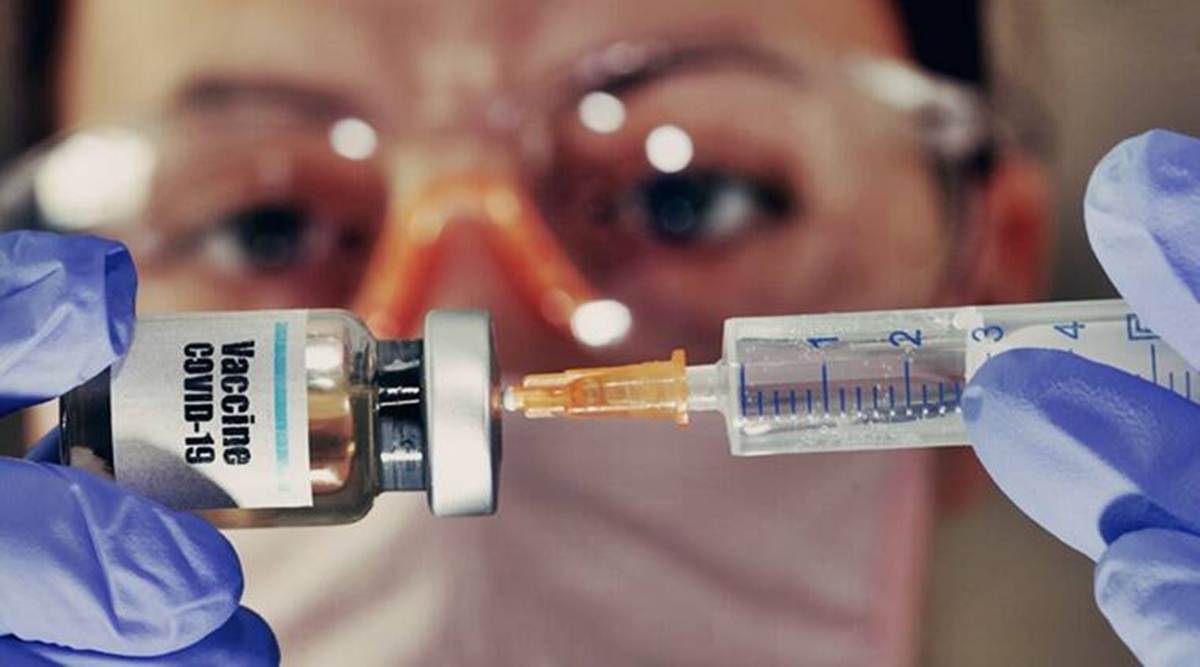[ad_1]
 HMD, with an annual capacity of around 700 million auto-disable syringes for vaccination, is looking to scale up to 1 billion in the first half of 2021. (File)
HMD, with an annual capacity of around 700 million auto-disable syringes for vaccination, is looking to scale up to 1 billion in the first half of 2021. (File)
As several candidates in the global Covid-19 vaccine race inch closer to the regulatory approval stage, India is being tapped by both domestic and international players for the supply of ampoules, vials and syringes – products key to the delivery of the vaccine.
Major players in the industry such as German-Indian pharma glass and packaging joint venture Schott Kaisha have been pre-contracted to supply millions of vials a month to Serum Institute of India (SII), while the Indian arm of German pharma packaging giant Gerresheimer has been approached by Bharat Biotech.
Mumbai-based Borosil Glass Works has also been asked to submit samples for Indian and key foreign vaccine makers to run quality tests.

Among syringe makers, Hindustan Syringes and Medical Devices (HMD) and BD India, the Indian arm of the New Jersey-based medical equipment major, are receiving queries and orders from governments as well as agencies like the United Nations Children’s Fund (UNICEF) and GAVI, The Vaccine Alliance.
With companies looking at packing as many as 10 doses in a single, preferably tubular borosilicate glass vial, they are quick to dismiss concerns of a potential shortage. At the same time, firms said they have been gearing up for a demand spike, with some working on expanding their production capacity.
India has the capacity to manufacture “more than” 2 billion units of these vials, according to industry sources.
Mumbai-headquartered Schott Kaisha has already begun supplying approximately 5 million multi-dose vials to SII on a monthly basis specifically for Covid-19 vaccines. This supply is above and beyond the vials it already supplies to the Pune firm for making vaccines for immunisation programmes, said its director Rishad Dadachanji.
The firm, which has the ability to supply a little over 1 billion doses, has received queries from the US, Europe and Russia and has sent batches of its vials for clinical assessment.
“We are supplying vials to a mix of companies both in India and abroad and we are also discussing with some governments directly to meet their requirements,” Dadachanji told The Indian Express.
“Our machines are flexible. So, from most of our lines, we can produce anything from a small chromatography vial all the way up to a 30 or 50-ml vial,” he said.
Borosil, meanwhile, is looking at expanding its annual capacity of 250 million vials and can increase it by a third a year, said its managing director Shreevar Kheruka.
“Right now, no one is talking about numbers. They want to test the glass and the stability of the products,” he said, adding that, in the end, capacities would be blocked on a first-come-first serve basis.
Gerresheimer’s India arm is also currently doubling its capacity to make multi-dose borosilicate vials to around 300 million pieces from the current 150 million.
“Several vaccines are under clinical trials here and so we are expecting a higher demand in India because of this. Companies like Bharat Biotech are in touch with us regarding availability and validation of our facility,” said Khasim Saheb, Managing Director, Primary Packaging Glass-India, Gerresheimer. “At this point of time, we are in discussions and multinational companies are also blocking capacity from us.”
The firm is expecting “at least” 30-40 percent of its capacity to be used for producing vials for the Covid-19 vaccine.
While it is “very difficult” to assess the actual demand for these vials, initial estimates put it at a billion doses, according to Saheb. And the demand from Indian manufacturers for global supplies will be “not less than” vials for an estimated 1.5-3 billion doses.
At the same time, HMD, which owns DispoVan and Kojak brands of syringes, and BD, are waiting for word from the Government.
For, while most vial-makers are dealing with pharma companies, syringe firms usually have a larger role in direct supplies to governments that mass supply the vaccines. India has the capacity to supply over 2 billion syringes, though not all of this is auto-disabled syringes that firms feel will be the preference in immunisation exercises like these.
HMD, with an annual capacity of around 700 million auto-disable syringes for vaccination, is looking to scale up to 1 billion in the first half of 2021.
The firm has received orders from UNICEF to increase its supply to around 300 million to build up a stockpile of around 140 million syringes for Covid-19 by the end of the year, said HMD managing director Rajiv Nath.
BD is partnering with or is in advance stage discussions with government and non-government entities in the US, UK, Canada and Japan as well as UNICEF and GAVI to use its global capacity of over 7 billion syringes, said its India and South Asia managing director Pavan Mocherla.
📣 The Indian Express is now on Telegram. Click here to join our channel (@indianexpress) and stay updated with the latest headlines
For all the latest India News, download Indian Express App.
[ad_2]
Source link